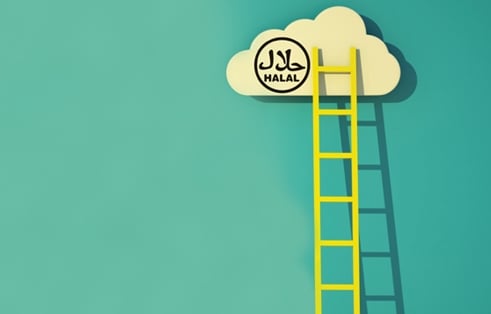
The bilingual and homonymous title “Rizq/Risk” of the fourth Karachi Biennale (KB24) serves as a thought-provoking alarm, prompting to reflect on the delicate balance between sustenance and danger.
This play on words aims to encourage people to ponder over intricate relationship between their daily needs and the potential threats that come with them.
The largest exhibition of contemporary arts in Pakistan, which has been in full swing since October 27, featured international and local exhibitions at five venues, showcasing the work of 40 artists from 10 countries. The event aimed to connect art, the city, and its people.
KB24 featured five distinct themes across its venues, showcasing a diverse range of artistic expressions. “Multiple Voices” at Bagh Ibne Qasim, the inaugural venue, highlighted the diversity of voices in the art world, “Unraveling the Threads” at Sambara Art Gallery, explored the complexities of art and its connections, specifically with ‘Rizq’, “Our Land Our Stories” at Frere Hall, celebrated the rich cultural heritage of Pakistan, “Riverine Resilience” at the NED University City Campus, focused on the resilience of communities along riverbanks, and “Songs of Sisterhood” at the Alliance Francaise, honoured the power of female solidarity and creativity.
Mexican visual artist Paloma Ayala’s project ‘Take anything but my tongue and feet’ is installed at the Sambara Art Gallery. The project depicts community’s norms which the family of agriculturalists will lose when their farmland is developed into a residential area.
Pakistani multimedia artist Asif Khan’s work ‘Once Upon A Landscape’ presents an aerial view of the effect of urbanisation on the agricultural landscape of Punjab. The two videos facing walls show two contrasting scenarios, mirroring the Rizq/Risk title. One show Punjabi farmers planting rice, which is consumed as sustenance by many. While the other wall show workers laying concrete and asphalt to make the land an infertile road.
Karachi Biennale Trust invited art educational institutions from all over Pakistan to join in highlighting the killing of artists and cultural practitioners in Gaza. A number of art schools including Department of Visual Studies, Karachi University participated to the theme which aims to create awareness of the loss of irreplaceable cultural capital of Palestine which consists of its talented artists, art professionals, art works, art museums, art spaces and historical sites. The art presented by the participating institutions raise consciousness of the indiscriminate bombing of ancient heritage sites in Gaza. Their projects are shared in a public space at Bagh Ibne Qasim.
Not just this, a reading room accessible to the public has also been set up at Bagh Ibne Qasim, housing a collection of archival readings. A special talk, ‘The Importance of Archives,’ was also hosted, shedding light on the value of preserving historical records.
One of the organisers Niilofur Farrukh, while talking to The Express Tribune, said Karachi Biennale Trust started when the city was under political violence. They bring together local and international artists every two years, except during the COVID-19 pandemic. According to Niilofur, their vision was to leverage heritage as a unifying force, fostering community cohesion.
Frere Hall presents Pakistani artist Mahreen Zuberi’s installation ‘In Proportions’ which reimagines ‘Rizq’ as spiritual nourishment. Inspired by her research at Abdullah Shah Ghazi’s shrine, Mahreen explores the sacred ritual of food offerings seeking divine deliverance. Her installation transforms the shrine’s transcendent atmosphere and material offerings into abstract geometric forms in muted grey, beaten gold, and white. Incorporating sugar and gram flour, the key ingredients in traditional sweets offered to the saint, the work embodies euphony between the spiritual and material.
At Alliance Francaise, through her powerful art, Farida Batool challenges societal norms and gender politics, sparking crucial conversations. Her thought-provoking sculpture, Daaney Pe Likha Hai transforms barbed wire into delicate wheat stalks, shedding light on the unsung heroes of food production: women. Batool’s work highlights the resilience of women in Gaza and Pakistan as well, who cultivate life amidst conflict and destruction.
Hyderabad based visual artist Qadir Jhatial’s installation at NED University city campus transports a Sukkur fishing boat to Karachi, embedded in sand and adorned with utensils. This poignant work highlights fishermen’s resourcefulness, turning their boats into makeshift homes on the water. Using this project, he communicates resilience of communities along riverbanks.
